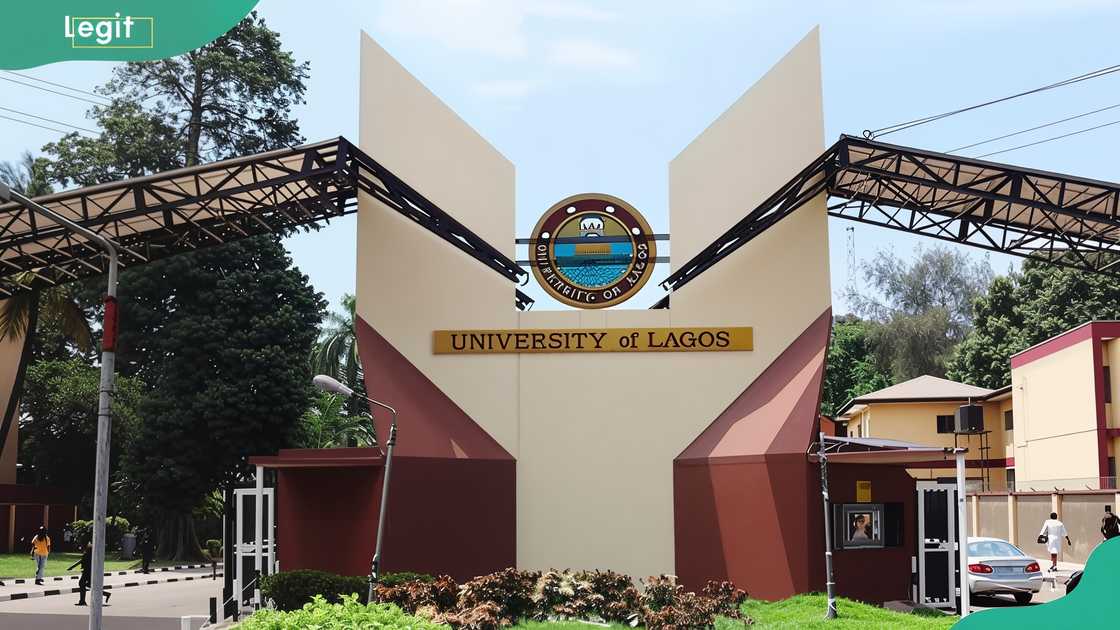Engineering courses in Nigeria and the top 10 universities for engineering
Engineering courses in Nigeria, such as civil, mechanical, electrical, computer, and petroleum engineering, play a vital role in national development. These programmes are offered in institutions such as the University of Lagos, Obafemi Awolowo University, Ahmadu Bello University, and University of Ibadan.

Source: UGC
TABLE OF CONTENTS
- Key takeaways
- Types of engineering courses in Nigeria
- Admission requirements for engineering courses in Nigeria
- Top universities for engineering in Nigeria
- 1. University of Lagos (UNILAG)
- 2. Obafemi Awolowo University (OAU)
- 3. University of Nigeria, Nsukka (UNN)
- 4. Federal University of Technology, Akure (FUTA)
- 5. University of Ibadan (UI)
- 6. Ahmadu Bello University (ABU Zaria)
- 7. Covenant University, Ota
- 8. Federal University of Technology, Minna (FUTMINNA)
- 9. Ladoke Akintola University of Technology (LAUTECH)
- 10. Federal University of Technology, Owerri (FUTO)
- How many years is an engineering course in Nigeria?
- Which field of engineering is the highest paid?
- Which engineering is most in demand in Nigeria?
- Which university is the best for mechanical engineering in Nigeria?
- Which university is best for engineering?
Key takeaways
- Engineering courses, including civil, mechanical, electrical, chemical, computer, and petroleum engineering, among others.
- Federal universities such as UNILAG, UNN, and FUTA generally have the most advanced engineering facilities and accreditation from COREN.
- Engineering courses in the universities require high admission qualifications, including attaining a UTME cut-off mark of between 200 and 250.
Types of engineering courses in Nigeria
Engineering in Nigeria covers a wide range of disciplines that cater to different sectors of the economy. Each branch focuses on solving specific technical and industrial challenges through innovation and design. These diverse fields provide students with opportunities to specialise according to their interests and career goals.

Source: UGC
Civil engineering
Focuses on designing, constructing, and maintaining infrastructure such as roads, bridges, dams, and buildings. It plays a crucial role in urban development and environmental sustainability. Civil engineers ensure structures are safe, durable, and efficient for public use.
Mechanical engineering
Deals with the design, production, and maintenance of machines, tools, and mechanical systems. It is one of the broadest engineering fields, covering areas like the automotive, energy, and manufacturing industries. Mechanical engineers apply physics and material science to improve machine performance and efficiency.
Electrical and electronics engineering
Covers the study of electricity, power systems, and electronic devices. Professionals in this field design electrical circuits, power generation systems, and communication networks. It is vital in advancing modern technologies such as renewable energy and automation.
Chemical engineering

Source: Getty Images
Focuses on transforming raw materials into valuable products through chemical processes. It combines principles of chemistry, physics, and biology to produce materials like fuels, plastics, and pharmaceuticals. Chemical engineers work to make these processes safe, cost-effective, and environmentally friendly.
Computer engineering
Combines electrical engineering and computer science to develop both hardware and software systems. It involves designing computer components, embedded systems, and digital networks. Computer engineers contribute to innovations in artificial intelligence, cybersecurity, and smart technologies.
Petroleum engineering
Specialises in the exploration, extraction, and production of oil and gas resources. It involves studying the behaviour of fluids in porous rock formations and developing efficient drilling techniques. Petroleum engineers are key players in the global energy industry.
Agricultural and bioresources engineering

Source: Getty Images
Applies engineering principles to improve agricultural productivity and sustainability. It covers areas such as irrigation, farm machinery design, and post-harvest technology. The goal is to enhance food production while conserving natural resources.
Industrial and production engineering
Focuses on optimising manufacturing systems and industrial processes for efficiency and quality. Engineers in this field design workflows, manage resources, and integrate technology to improve productivity. It bridges the gap between engineering and management.
Systems engineering
Concentrates on designing, integrating, and managing complex engineering projects across multiple disciplines. It ensures that all components of a system function effectively together to meet performance goals. Systems engineers are often involved in large-scale projects such as aerospace, defence, and transportation.
Mechatronics engineering
Integrates mechanical, electrical, and computer systems to create smart automation and robotics solutions. It focuses on developing intelligent machines that can perform precise and automated tasks. Mechatronics engineers are essential in industries such as manufacturing, healthcare, and robotics innovation.
Admission requirements for engineering courses in Nigeria

Source: UGC
Admission requirements for engineering courses in Nigeria vary depending on the university and programme. Generally, candidates must meet both JAMB and O-Level requirements. Below are the general requirements:
- O-Level requirements – Minimum of five credits in English Language, Mathematics, Physics, Chemistry, and Further Mathematics (or any relevant science subject). Results must be obtained in not more than two sittings (WAEC, NECO, or GCE).
- Cut-off mark – Most universities require a UTME score between 200 and 250, though highly competitive institutions like UNILAG or UI may demand higher marks.
- Post-UTME – Successful candidates must also pass the university’s Post-UTME screening or aptitude test.
Top universities for engineering in Nigeria
Nigeria has over 100 universities offering engineering programmes, but only a few consistently stand out in quality, innovation, and global reputation. Below are the best universities for engineering in Nigeria:
1. University of Lagos (UNILAG)

Source: UGC
- Location: Akoka, Lagos State
- Email address: admissions@unilag.edu.ng
- Establishment date: 1962
Located in Akoka, Lagos, UNILAG is one of the most prestigious universities in Nigeria. Its Faculty of Engineering offers programmes in civil, mechanical, electrical/electronics, chemical, and systems engineering. The university boasts advanced laboratories, partnerships with global companies, and strong COREN accreditation.
2. Obafemi Awolowo University (OAU)

Source: UGC
- Location: Ile-Ife, Osun State
- Email address: info@oauife.edu.ng
- Establishment date: 1961
OAU’s Faculty of Technology is one of the oldest and most respected in Nigeria. The university offers courses like agricultural engineering, computer engineering, and electrical engineering. OAU is known for combining research excellence with practical exposure through internships and fieldwork.
3. University of Nigeria, Nsukka (UNN)

Source: UGC
- Location: Nsukka, Enugu State
- Email address: info@unn.edu.ng
- Establishment date: 1955
UNN’s Faculty of Engineering has produced some of Nigeria’s leading engineers. It offers disciplines such as civil, mechanical, electrical, and metallurgical engineering. UNN is highly rated for its strong research culture and industrial collaborations.
4. Federal University of Technology, Akure (FUTA)

Source: UGC
- Location: Akure, Ondo State
- Email address: registry@futa.edu.ng
- Establishment date: 1981
FUTA focuses primarily on technology and engineering education. Its programmes include civil, electrical, mining, and agricultural engineering. The university is known for innovative projects and producing employable graduates.
5. University of Ibadan (UI)

Source: UGC
- Location: Ibadan, Oyo State
- Email address: registrar@ui.edu.ng
- Establishment date: 1948
Although the University of Ibadan started mainly as a medical and science university, its Faculty of Technology has grown significantly. UI offers industrial, civil, and electrical engineering programmes. It combines academic rigour with entrepreneurship and research-driven learning.
6. Ahmadu Bello University (ABU Zaria)

Source: UGC
- Location: Zaria, Kaduna State
- Email address: servicom@abu.edu.ng
- Establishment date: 1962
ABU has one of the largest engineering faculties in West Africa. Its offerings include chemical, civil, mechanical, electrical, and computer engineering. The university’s long-standing industry connections make it a top choice for aspiring engineers.
7. Covenant University, Ota

Source: UGC
- Location: Ota, Ogun State
- Email address: info@covenantuniversity.edu.ng
- Establishment date: 2002
Covenant University, a private Christian institution, has modern facilities and an international reputation. The College of Engineering offers programmes in electrical, civil, and mechanical engineering. It emphasises entrepreneurship and innovation in technology.
8. Federal University of Technology, Minna (FUTMINNA)

Source: UGC
- Location: Bosso Minna, Niger State
- Email address: registrar@futminna.edu.ng/sit
- Establishment date: 1983
FUTMINNA is a specialised technology university focused on applied sciences and engineering. Its engineering courses include mechanical, electrical, computer, and civil engineering. Students gain hands-on experience through collaborations with industries and research centres.
9. Ladoke Akintola University of Technology (LAUTECH)

Source: UGC
- Location: Ogbomosho, Oyo state
- Email address: registrar@lautech.edu.ng
- Establishment date: 1990
LAUTECH offers a range of engineering disciplines, including chemical, civil, mechanical, and agricultural engineering. The university combines academic and practical training with strong industry links. It has produced many successful engineers in Nigeria’s manufacturing and oil sectors.
10. Federal University of Technology, Owerri (FUTO)

Source: UGC
- Location: Owerri, Imo State
- Email address: info@futo.edu.ng
- Establishment date: 1980
FUTO is a leading technology institution located in Imo State. It offers programmes in petroleum, electrical, civil, and mechatronic engineering. The school is well-known for research in renewable energy and automation technologies.
How many years is an engineering course in Nigeria?
An engineering course in Nigeria typically takes five years for a bachelor's degree. This includes classroom learning, laboratory work, and a compulsory industrial training period.
Which field of engineering is the highest paid?
Petroleum engineering is generally the highest-paid engineering field in Nigeria. Professionals in this area earn high salaries due to the lucrative oil and gas sector.
Which engineering is most in demand in Nigeria?
Civil and electrical engineering are currently the most in demand in Nigeria. Their skills are essential in infrastructure development, energy, and construction projects.
Which university is the best for mechanical engineering in Nigeria?
The University of Lagos (UNILAG), one of the best learning institutions in Lagos, is widely regarded as one of the best for mechanical engineering in Nigeria. It offers quality education, advanced facilities, and strong industry connections.
Which university is best for engineering?
The University of Nigeria, Nsukka (UNN), is often considered one of the best universities for engineering in Nigeria. It offers a wide range of accredited engineering programmes with experienced faculty and modern laboratories.
Engineering courses in Nigeria provide students with the skills needed to drive technological and industrial growth. The country’s top universities offer quality training that meets global standards. Graduates from these institutions are well-equipped to excel in diverse engineering fields both locally and internationally.

Read also
Is environmental management and toxicology a good course in Nigeria? Everything to consider
Legit.ng recently published a list of the cheapest Nigerian universities offering medicine and surgery. These courses are among the most sought-after in the country, yet not all universities provide them. Knowing where to study and the specific qualification requirements can help you make informed decisions.
Some of the top affordable options include the University of Calabar, Ahmadu Bello University, and Abubakar Tafawa Balewa University. Read on to discover the full list of universities and their tuition fees.
Proofreading by Kola Muhammed, copy editor at Legit.ng.
Source: Legit.ng









